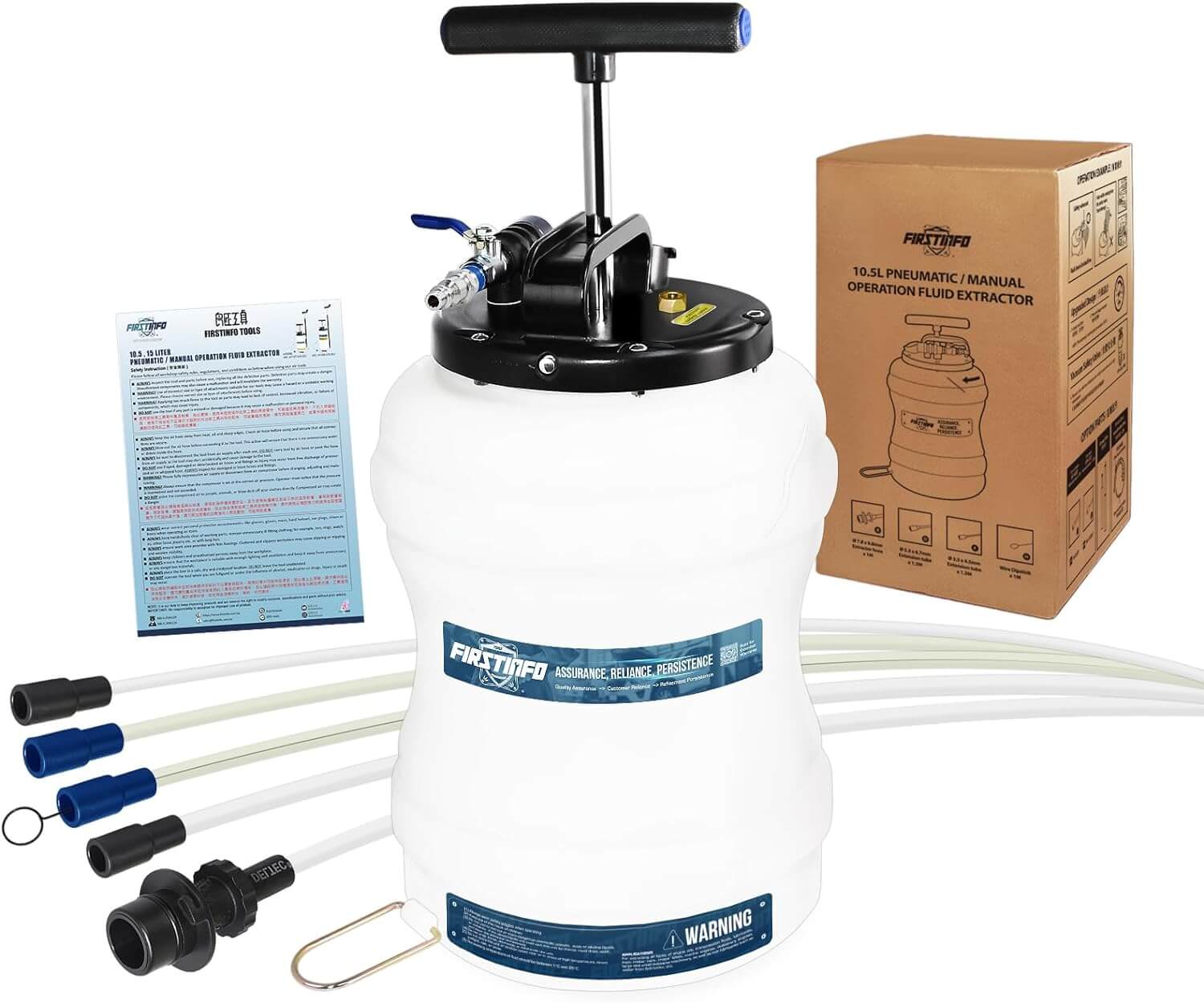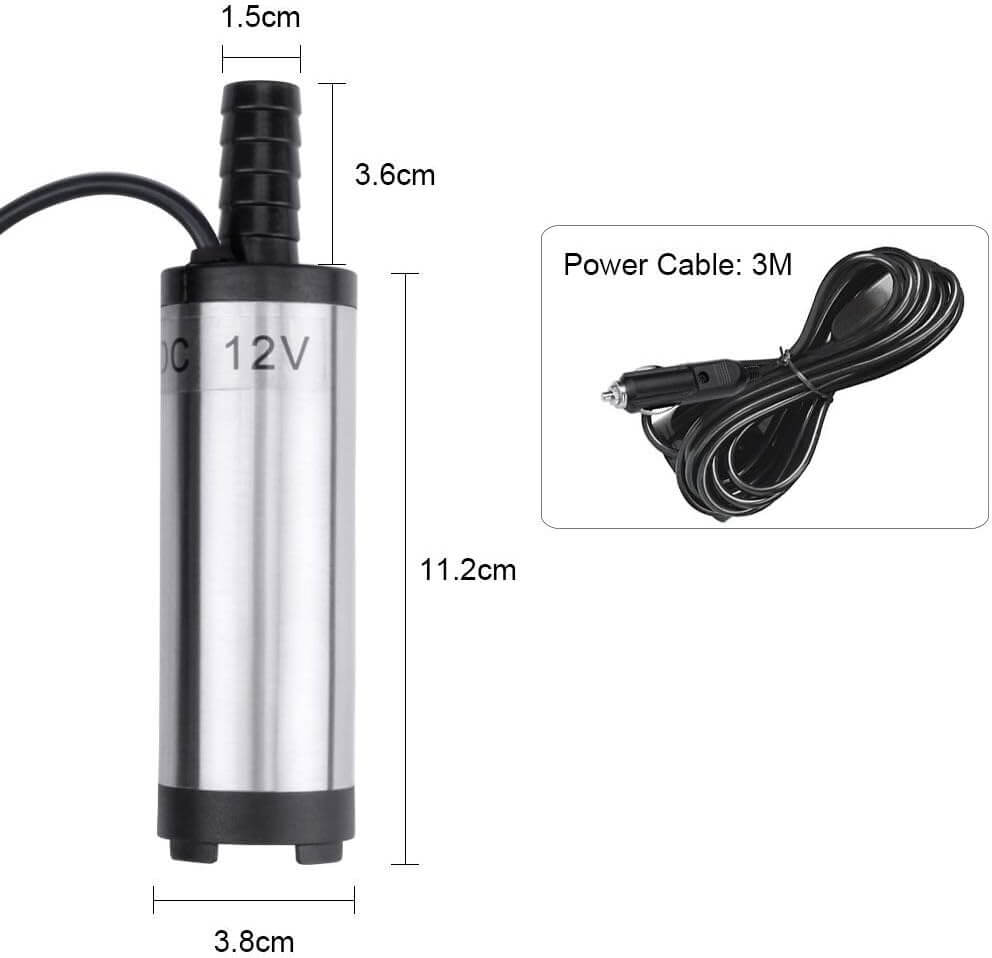In today’s modern automotive industry, oil pump extractors play a crucial role in ensuring the smooth operation and maintenance of vehicles. These innovative devices have revolutionized the way oil is extracted from engines, eliminating the messy and time-consuming process of traditional draining methods.
With their efficient and easy-to-use design, oil pump extractors have become a go-to tool for mechanics and car enthusiasts alike, enabling them to effortlessly and effectively remove old oil, ultimately prolonging the life and performance of engines.
Overview of the Modern Automotive Industry
The automotive industry has come a long way since its inception, with advancements in technology and manufacturing processes shaping the vehicles we see on the roads today. This evolution has been driven by the constant pursuit of efficiency, safety, and environmental sustainability.
Evolution of the automotive industry
The automotive industry has witnessed significant changes over the years. From the invention of the first car in the late 19th century to the introduction of automated and electric vehicles in recent times, the industry has embraced innovation and continuously evolved to meet the changing needs of consumers.
Importance of efficient maintenance in modern vehicles
Efficient maintenance is crucial for the smooth functioning and longevity of modern vehicles. Regular maintenance, including timely oil changes, plays a vital role in ensuring the optimal performance and reliability of automobiles. Neglecting maintenance can lead to a host of issues, impacting not only the vehicle’s performance but also the safety of its occupants.
Significance of regular oil changes
Oil changes are an essential part of vehicle maintenance, as they help keep the engine running smoothly and efficiently. Regular oil changes ensure the engine is adequately lubricated, reducing friction and preventing premature wear and tear. Clean and fresh oil also prevents the buildup of harmful deposits, maintaining optimal engine performance.
Understanding Oil Pump Extractors
Definition and purpose of oil pump extractors
An oil pump extractor is a device specifically designed to remove old or contaminated oil from the engine without the need for manual draining. It offers a convenient and efficient solution for extracting oil, minimizing the mess and effort typically associated with traditional oil-changing methods.
Components of an oil pump extractor
Oil pump extractors consist of several key components that work together to perform oil extraction. These components include a suction pipe, a vacuum pump, a collection container, and various seals and fittings. The suction pipe is inserted into the engine’s oil pan to extract the oil, while the vacuum pump creates the necessary suction to facilitate the extraction process.
Types of oil pump extractors
There are different types of oil pump extractors available in the market today. The most common types include manual hand pump extractors, pneumatic extractors, and electric extractors. Manual hand pump extractors rely on hand-operated pumping action, while pneumatic and electric extractors utilize compressed air or electricity to power the extraction process.
Benefits of Using Oil Pump Extractors
Efficiency and effectiveness in removing oil
Oil pump extractors offer a highly efficient and effective method of removing oil from the engine. Unlike traditional drainage methods, which can be time-consuming and messy, oil pump extractors allow for quick and hassle-free extraction. The suction pipe extracts oil from the deepest parts of the oil pan, ensuring thorough removal of old or contaminated oil.
Time-saving advantages
Using an oil pump extractor saves valuable time compared to conventional oil-changing methods. With traditional methods, draining the oil can take a significant amount of time, whereas oil pump extractors can complete the extraction process quickly and efficiently. This time-saving advantage is particularly beneficial for professional mechanics and individuals with busy schedules.
Reduction of mess and environmental impact
One of the significant advantages of oil pump extractors is the reduced mess associated with oil changes. Traditional oil changes often result in oil spills and splatters, leading to a messy garage floor or driveway. However, by using an oil pump extractor, the extraction process is contained within a sealed system, minimizing the risk of spills and reducing environmental impact.
The Process of Oil Extraction using Pump Extractors
Preparation before oil extraction
Before using an oil pump extractor, it is essential to prepare the vehicle and gather the necessary tools. Begin by parking the vehicle on a level surface and ensuring the engine is cool. It is also crucial to have the correct extractor size and a suitable collection container on hand.
Step-by-step procedure of using oil pump extractors
To extract oil using a pump extractor, start by locating the oil drain plug and removing it. Next, insert the suction pipe of the oil pump extractor into the oil pan through the drain plug hole. Secure the suction pipe to ensure a tight fit. Once properly connected, operate the pump or turn on the electric extractor to begin the extraction process. Monitor the extraction until the oil flow reduces, indicating that the majority of the oil has been removed.
Post-extraction maintenance
After completing the oil extraction process, it is crucial to replace the drain plug and securely tighten it. Dispose of the extracted oil in an environmentally responsible manner, such as taking it to a recycling center. Finally, it is recommended to double-check for any leaks and clean up any spilled oil to maintain a clean and safe working environment.
Enhancing Vehicle Performance through Oil Extraction
Impact of regular oil extraction on engine performance
Regular oil extraction using pump extractors plays a significant role in enhancing vehicle performance. By removing old, contaminated oil and replacing it with fresh, clean oil, the engine operates more efficiently. This ensures proper lubrication of engine components, reduces friction, and minimizes the risk of engine damage, thereby improving overall performance.
Prevention of sludge buildup
Over time, oil in the engine can become contaminated by dirt, debris, and other contaminants. This contamination can lead to the formation of sludge, a thick and sticky substance that can block oil passages and impede the flow of lubrication. Regular oil extraction helps prevent sludge buildup, ensuring the smooth operation of the engine and preventing potential damage.
Improved fuel efficiency and engine lifespan
Efficient engine performance directly impacts fuel efficiency. By regularly extracting oil and maintaining optimal lubrication, the engine operates more smoothly, reducing energy losses and improving fuel efficiency. Additionally, by preventing engine damage and maintaining proper lubrication, regular oil extraction can help extend the lifespan of the engine, saving drivers from costly repairs and replacements.
Safety Considerations when Using Oil Pump Extractors
Importance of following manufacturer guidelines
When using an oil pump extractor, it is crucial to follow the manufacturer’s guidelines and instructions. Each extractor may have specific requirements and recommendations for safe and effective use. By adhering to these guidelines, users can ensure their safety, as well as the proper functioning of the extractor.
Proper handling of oil and waste disposal
When working with oil pump extractors, it is essential to handle the extracted oil with care and dispose of it responsibly. Used oil is considered hazardous waste and should never be disposed of in the regular trash or poured down drains. Instead, it should be collected in a suitable container and taken to a designated recycling facility for proper disposal.
Preventing accidents during oil extraction process
To prevent accidents during the oil extraction process, it is important to take necessary precautions. This includes wearing protective clothing, such as gloves and safety goggles, to shield against any potential oil splatters. Additionally, ensuring the vehicle is on a level surface and applying the parking brake can prevent unintended movements that could lead to accidents.
Maintenance Tips for Oil Pump Extractors
Cleaning and maintaining the extractor
Regular cleaning and maintenance of the oil pump extractor are essential for optimal performance. After each use, it is recommended to clean the suction pipe and other components of the extractor thoroughly. This helps prevent the buildup of oil residue or debris that could affect the extractor’s functionality. Additionally, periodically inspecting and replacing any worn or damaged parts is crucial for the longevity of the extractor.
Replacing worn out parts
Over time, certain components of an oil pump extractor, such as seals or fittings, may become worn or damaged. It is important to regularly inspect these parts and replace them as necessary. By keeping the extractor in good working condition, users can ensure efficient oil extraction and extend the overall lifespan of the extractor.
Regular inspections and troubleshooting
Performing regular inspections on the oil pump extractor can help identify any potential issues or malfunctions. This includes checking for any leaks, testing the suction power, and ensuring all fittings and connections are secure. If any problems are detected, it is important to consult the manufacturer’s instructions or seek professional assistance for troubleshooting and repairs.
Emerging Technologies in Oil Extraction
Automated oil extraction systems
As technology continues to advance, automated oil extraction systems are gaining popularity in the automotive industry. These systems utilize sensors, pumps, and valves to automatically extract and replace oil, eliminating the need for manual intervention. Automated oil extraction systems offer increased accuracy, efficiency, and convenience, making them a promising innovation in the field.
Integration with vehicle diagnostic systems
Integrating oil extraction systems with vehicle diagnostic systems is another emerging trend in the industry. By synchronizing oil extraction data with the vehicle’s onboard computer, users can receive real-time insights into the condition of the engine and the quality of the oil. This integration allows for proactive maintenance and timely oil changes based on actual engine performance and requirements.
Innovations to improve extraction efficiency
Continuous research and development in the field of oil extraction have led to innovative solutions that aim to improve extraction efficiency. These include improved sealing mechanisms, enhanced suction capabilities, and optimized extraction techniques. By refining the extraction process, these innovations contribute to better engine performance and increased maintenance efficiency.
Challenges and Limitations of Oil Pump Extractors
Compatibility with different vehicle models
One of the challenges faced by oil pump extractors is ensuring compatibility with a wide range of vehicle models. Each vehicle may have varying oil pan designs and access points, making it necessary to adapt the extractor to suit different requirements. Manufacturers are constantly working on developing versatile extractors that can cater to a multitude of vehicle models.
Effectiveness in removing old and thickened oil
While oil pump extractors are generally efficient in removing oil, they may face limitations when dealing with old or thickened oil. In such cases, additional steps, such as using oil additives or warming up the engine before extraction, may be necessary to facilitate the process. It is important for users to be aware of these limitations and adjust their extraction methods accordingly.
Accessibility to all parts of the oil pan
The design of the oil pan can sometimes pose challenges to oil pump extractors, particularly in reaching all areas and extracting every last drop of oil. Various oil pans have baffles or other structures that may obstruct the suction pipe or restrict the flow of oil. While extractors can generally overcome these obstacles, it may require additional effort or alternative techniques to ensure complete extraction.
Conclusion
Oil pump extractors play a vital role in the modern automotive industry by enabling efficient and hassle-free oil changes. Their ability to remove old or contaminated oil from the engine contributes to improved performance, fuel efficiency, and overall engine lifespan.
With emerging technologies and advancements, the future of oil pump extractors looks promising, offering the potential for increased automation, integration, and improved extraction efficiency. By prioritizing proper maintenance, following safety guidelines, and staying informed about the latest advancements, users can leverage the benefits of oil pump extractors to enhance their vehicle’s performance and contribute to a sustainable automotive industry.


